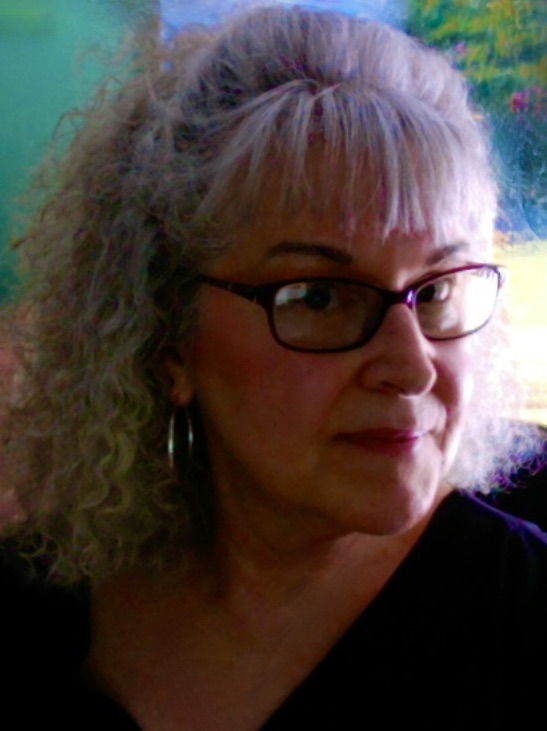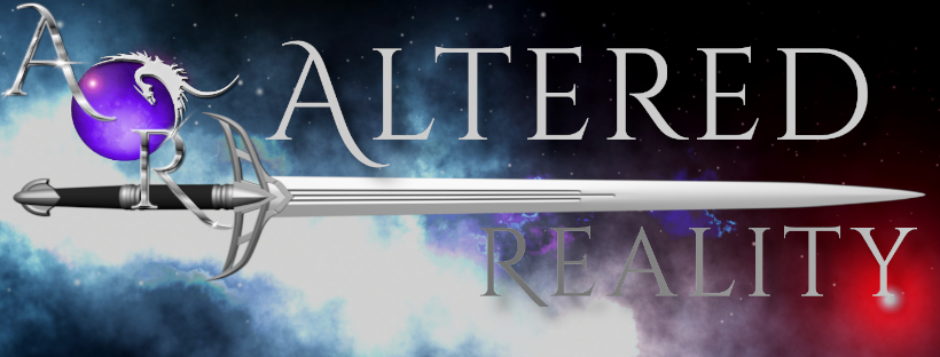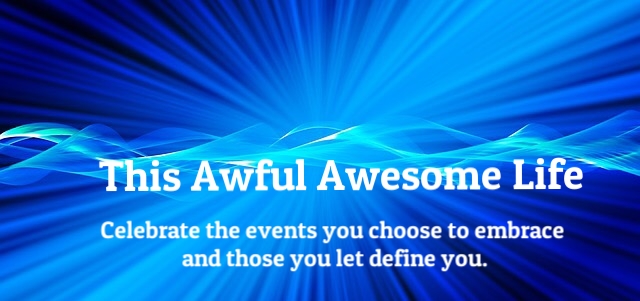The Wayfarer crew consisted of three men and one woman. The captain was Daiki Abe, the pilot Bisa Green, navigator Lucas Halla, and the communicator Hugo Mendoza. They were heading out on an historical first attempt at moving faster than light using space jumps.
“Well, not actually traveling faster than light,” clarified Captain Abe to the press before takeoff. “We’ll be traveling roughly 62,000 kilometers per hour, but getting from point to point will involve our first attempt at folding space. In other words, during the folding process, we will jump millions of kms.”
“How often will you jump and how do you decide when to do it?” asked the aggressive and obviously ambitious reporter, a blonde resembling the old movie star, Lauren Bacall. Abe would hold her in his mind when in space; she was his exact fantasy type though his wife, whom he loved very much, looked nothing like that.
“About once every twenty-four hours,” he told her and the public. “We will perform the procedure and then let the ship settle. Do an allover checkup before trying it again. We plan on not getting sloppy. In other words, taking nothing for granted and checking each time as if it were the first time.”
“And your goal is?”
“To leave our solar system and enter deep space. We will be the first manned vehicle from Earth to deep space.”
“And once you’re there, then what?”
Bisa, the pilot, wanted to smack the arrogant bitch, but the TV watching public did have a right to know these things. People who really wanted to know would have already read the details online.
“We’ll turn around and come back,” said Abe patiently. “This is just an experiment to see if we can handle space jumping before we do any serious exploring. By the way, we accept all prayers for our safety. This is a dangerous mission.”
Little did Abe know that while “dangerous” might not be the exact correct word, they were in for something unimagined.
One last look at the reporter and Abe joined the rest of his crew. As they disappeared back inside SpaceWorks’ doors, the world continued on its chaotic way and the astronauts returned to business.
The ship took off with much fanfare on a sunny morning in June. A large crowd, including reporters, TV cameramen, school teachers and excited children crowded at the barricades. Once they were in space, Pilot Green signed with relief.
“I love being an astronaut,” she said, “but I hate the publicity crap. Such a pleasure to be out of that glare and on the actual job.”
“I agree,” said Abe. “But unfortunately, since taxpayers are supporting this endeavor, we have to cater to them or there might be no further flights.”
Of course, the intense and driving desire of all onboard was that there be future flights into deep space. They envisioned meeting aliens and secretly pictured lives of adventure akin to those seen on Star Trek series. As did children and space enthusiasts the world over.
They rode peacefully in the darkness, not seeing any planets, just the stars and occasional debris.
“Too bad Mars is on conjunction with Earth,” Mendoza chimed in. “It would have been a pleasure to see it and signal the colony. But it’s easier to just head straight for deep space without being sidetracked.”
“I’m not sure how long that colony will last,” said Green. “They seem to be dropping like flies.”
“Not something I’d ever volunteer for, I’ll tell you that,” Halla added . “I don’t think our destiny lies in trying to live on a dead planet. The future hinges on finding live planets or moons.”
“But,” said Green, “chances are they would already be inhabited. Likely, even.”
“Well, maybe, maybe not,” said Halla, shrugging.
No one said anything for a while.
Finally, Captain Abe said, “Well, crew, it’s time to try this thing.”
Everyone jumped into action, pulled down helmets from the ceiling and snapped them on. Then they strapped themselves in securely and looked at the captain. Abe nodded at the pilot and Green placed her hands on the controls.
“Ten, nine, eight…” said Abe and everyone held their breath. And then came “one” and Green laid her middle finger on a green oval and…it felt as if nothing had changed.
“Did anything happen?” asked Mendoza.
For a moment, no one was sure but then the navigator said, “We are 9.2 AU from Earth. Look out there, have perspective.”
Everyone cheered except the captain.
“All right,” he said. “Past Saturn’s orbit – if it were near us.”
“Well, yes,” Halla agreed . “If Saturn were near us at the moment, we’d be past it but able to see it.”
“It worked,” said Abe with wonder in his voice. “I mean, I thought it would but you never know.”
“Well,” said Green, “it worked on numerous probes.”
“But not on live humans.”
“Well, the chimps,” said Mendoza. “It did work on them.”
“Something the public will never hear about,” said Abe firmly.
“This calls for a celebration,” Halla cut in, “just a mild one. We do have beer.”
No one objected so he got some out and passed it around. The crew went over every move they’d made and no one or thing seemed changed or harmed in any way.
“Diagnostics show that everything is in working order,” said Abe. He sipped his beer, made a face and said, “This beer sucks.”
“Not cold enough,” Green said, “but better than no beer at all.”
“So,” said Halla, “we’re sticking to the once every twenty-four hour jump?”
Abe considered the question. “How about this: we wait the twenty-four for the next jump and if that goes perfectly, we then make it every twelve. I see no reason to stretch it out if it’s not necessary. Mendoza, relay that information back to base.”
Mendoza moved to his station and followed the order.
“They might not like it,” he warned.
“Well, they’re not here on the ship,” said Abe calmly.
The next jump went fine and the following one was scheduled for twelve hours later.
“What is our position now, Halla?” Abe asked.
“Each jump is 9.2 AU so we are now 18.4 AU from Earth. Of course, there is no reason to keep each jump the same distance. We can lengthen or shorten it to any degree we choose. I suggest that we double the distance of our next jump.”
Everyone was silent as they digested this. Of course, it had been discussed at the base but most scientists had opted for sticking to the original jump size. That didn’t mean the crew had to follow this direction.
“Time,” called Abe.
“Doubling it will take us beyond Pluto’s orbit,” answered Halla.
“Then, we will have reached deep space,” Abe replied firmly. “And we can slow down, turn around and return. Or…go a bit farther and take a look around. They still claim that ninth planet might be out there somewhere, so who’s to say where the system ends and deep space begins? I can’t believe there is still argument about that.”
“The math says it exists,” argued Green.
“Nasa claims it doesn’t.”
Direct communications were now and had been impossible since the first jump due to the distance.
Mendoza reminded Abe, “Mission Control will not be happy with that decision, Captain. Are you sure you want to piss them all off?”
Abe looked irritated but remained even-keeled. “Believe me there are those who would agree with me.”
“Well, then,” said the communicator placatingly. “Larger jumps have to be used if we are ever to travel to the stars, so I don’t personally have an objection.”
Twelve hours later, they were all well refreshed, antsy even and ready for action. Abe jokingly raised a finger Star Trek captain style and said, “Make it so,” and Green’s fingers flew over her buttons and made it so.
Only something was wrong.
Halla noted, “For some reason, we are 1.6 AU short. We just stopped at this point even though our jump should have taken us that distance further.”
Abe was silent while he scanned his instruments and the sky beyond. Finally, he said, “All right, let’s not panic. Let’s wait twelve hours, take sleep shifts, and then do a short jump into deep space.”
Everyone nodded except for Halla who seemed preoccupied. Abe and Mendoza went off for first sleeping shift and the other two broke out a deck of playing cards.
As she dealt out the cards, Green said to Halla, “I’m not feeling good about this. There should be no reason for this sudden disability to jump. There are no indicators that space beyond this point is any different in any way from where we are now.”
“Might it be better to jump, say, just 1.5 AU, not 1.6 or more and then coast over the apparent border. The question is what exactly is this border and why would it be a precise location since Pluto’s orbit, being elliptical as are the others, ranges quite a distance. From 30 to 49.3. And tilted. We’re not even near it,” Halla replied.
“Yes, there is that,” said Green, “We’re at the short end. But…well, I don’t know. All we can do is try another jump and then see.”
Twelve hours later, Green was back in position and everyone was sitting there tensely.
She said, “As I suggested to Halla, why won’t we try going 1.5 then cruise regular speed over the supposed border. The thing is, I don’t even get there being a border at all.”
“Sneak over, you mean,” laughed Abe.
She shrugged. “If you like to call it that, works for me.”
It took a great deal of persuasion to get Abe to agree to the shortened jump but Green and Halla managed to do it, allowing Green to put in the coordinates and set it to go.
“Okay, so here we are,” said Abe dryly after it was done. “Now we creep along and see if the Great Space Goddess will let us go on?”
“That’s about it, Captain,” said Green. “And I appreciate that you said goddess instead of god, Sir.”
Abe sighed. “So now we’re stuck going at a snail’s pace.”
“I wouldn’t say that,” said Halla. “We can creep along for a while, as you put it, and then try a short jump.”
“Why not try that short jump right now?” asked Abe.
Green obviously did not want to, but after much pressure from the rest of the crew, she gave in.
“An extremely short one,” she cautioned. “Like 2 AU?”
Abe nodded and she went for it. And once again, they were stopped.
“I don’t understand this,” said Abe, shaking his head in frustration.
“I suggest, if I may,” said Green, “that we do it my slow way and creep along until we hit the same apparent mysterious line.”
“It will take days,” said Abe, throwing up his hands.
“Then it will take days,” said the pilot firmly.
Eight days later, they reached a mysterious border and everyone was anxious.
“What’s that over there?” Halla questioned sharply.
“What?” asked Green and then looked where he was pointing.
Flashes of color but in apparent squares and rectangles. They were there and then not there and then back again.
“Oh my god, they look like pixels!” Green said. “What the hell?”
Their ship continued to move, though Green had sent out a forward thruster to slow it down.
Abe stood up. “Look all round, look to the right. It is going on there and upward too.”
“It looks exactly like a screen breaking up,” said Mendoza and he started to sob.
“Hugo!” said Green, “what’s the matter? Why are you-?
“Don’t you see?” he yelled. “It doesn’t just look like pixels, it is pixels!” The real meaning of what he was seeing was sinking in.
The ship, though now slowing, was still heading into deep space. And more and more the star filled blackness was breaking up into millions of brightly colored pixels.
“Turn us around!” yelled Abe.
Green responded by shooting a thruster out the starboard side and the ship began to slowly turn left until it had made a full turn, while all around them space was falling apart. Were they all going to die now, dissolving themselves as everything else seemed to be doing?
Green did not need any further orders and immediately fired another thruster from their stern. Now the ship was heading back toward the sun.
“Put rear cameras on screen,” shouted Abe.
It was still happening behind them as if they were being chased by total destruction.
“Do a jump!” Abe ordered, and Green frantically set the course. In a minute, they were 12 AU along, the sun now slightly larger though still a very small, cold looking light.
They put up visuals of space behind them and saw that the pixel effect was lessening, calming down, though at various points there flickered colored squares, coming alive then dying out.
No one spoke.
“Jump again,” ordered Abe. Green obeyed.
“No pixels now,” said Halla weakly.
“We’re all afraid to say what we’re thinking,” said Mendoza, who had composed himself somewhat.
“A few more jumps and we can be home,” said Abe.
Some time passed before Green said, “If this is how it is,” she paused, “if this is the situation, will they let the world know?”
“That we’re living in a simulation?” asked Mendoza, his voice shaky. “That it ends at the solar system’s outer orbit? That all those fascinating galaxies were just part of the show? That all human dreams of traveling to the stars are over? That all of human dreams are nothing but dust now? Well, I sure don’t want to be the one to tell them.”
Thinking of his bright-eyed, space-crazy son and his prolific sci-fi writer wife, Abe said, “Nor do I, nor do I.” His eyes filled with tears.
“The question is,” said Green, “who is running it?”
About the Author
 Margaret Karmazin’s credits include stories published in literary and SF magazines, including Rosebud, Chrysalis Reader, North Atlantic Review, Mobius, Confrontation, Pennsylvania Review, The Speculative Edge, Aphelion, AnotherRealm and The Rabbit Hole. Her stories in The MacGuffin, Eureka Literary Magazine, Licking River Review and Mobius were nominated for Pushcart awards.
Margaret Karmazin’s credits include stories published in literary and SF magazines, including Rosebud, Chrysalis Reader, North Atlantic Review, Mobius, Confrontation, Pennsylvania Review, The Speculative Edge, Aphelion, AnotherRealm and The Rabbit Hole. Her stories in The MacGuffin, Eureka Literary Magazine, Licking River Review and Mobius were nominated for Pushcart awards.
![]()





